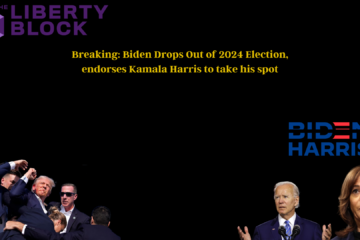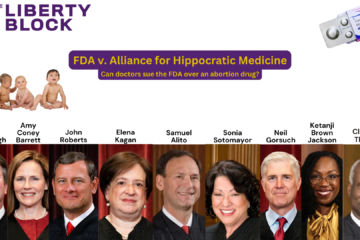Legislation proposed by seven Republican Representatives in the New Hampshire House would prohibit financial institutions from utilizing ‘social credit scores’ to discriminate against individuals.
China is run by a capitalist-socialist oligarchy controlled by the Communist Party. A few years ago, they began to implement the ‘social credit system’. In short, this new system tracked nearly every action of every citizen and either gave them points or penalized them for their actions, depending on whether they supported the government. Over the past few years, semi-private companies such as banks have begun to roll out social credit scores in the united states. Of course, they don’t call them communist social credit scores. They refer to them as ‘Environmental, Social Justice, & Governance’ scores. Banks themselves are ranked with ESG scores of their own, according to Statista. For the clients of these banks, this first impacts them when their financial advisor recommends against investing in stocks of businesses that have poor ESG scores (businesses that are not enviro-fascists, social justice warriors, and pro-government).
Recently, large banks such as Bank of America have begun to rate individuals with an ESG score. “In addition to creating this platform, their lending guidelines are also getting an update that includes new rules that will tie your individual ESG score to your ability to secure lending”, explains TheImpactInvestor.com.
House Bill 1469 is relatively simple. It states that “All banks and other financial institutions doing business in the state of New Hampshire, either directly or through the use of an outside contractor, shall not discriminate against, nor advocate for or cause adverse treatment of, any citizen or business in their business practices based on subjective or arbitrary standards such as social media posts; participation or membership in any clubs, associations, or unions, etc.; political affiliation; employer; or other social credit, environmental, social, and governance, or similar values-based or impact criteria.”
The good news: Unlike many other bills that purport to improve matters despite having no penalties for violating the new law, this one does have clearly defined punishments: “…any bank or credit union who violates subparagraph (g)(1) or (g)(2) shall, for a first offense be subject to a $50,000 fine; and for a second and each subsequent offense be subject to a $250,000 fine. If the bank or credit union has 5 or more offenses, criminal prosecution may be included along with any fines assessed under RSA 651:2.”
The bad news: As written, this bill may allow for banks to implement social credit scores under the guise of ‘employee safety’: “No provision of this law shall interfere with a bank’s or other financial institution’s ability to discontinue or refuse to conduct business with an individual account holder or potential customer when such action is necessary for the physical safety of its employees.“
Keep in mind that radical leftists believe that those who oppose global warming (remember, the ‘E’ in ‘ESG’ stands for ‘environmentalism’) do present an imminent threat to the safety of every human, including bank employees.
The fix: Current federal law likely makes it impossible for pro-freedom individuals to open any sort of financial institution. And don’t even think about using gold, silver, or cryptocurrency to open a local bank – that would certainly get you sent to prison. And we know that federal laws cannot be reformed. Ideally, once New Hampshire leaves the union and severs ties to DC, we could deregulate banking and allow anyone to open any business they desire. Then, we could enjoy both free-market competition and the fact that we no longer need to have debates about whether it is moral to regulate semi-governmental entities.
Hopefully, this prohibition on ESG scores in New Hampshire will get out in front of the issue before it spreads too broadly in the state. While some purists may not support this bill for fear that it restricts private banks, they should keep in mind that banks are closer to being government entities than they are to being truly private entities. As I explained in a prior article, when the day-to-day operations and decisions of a business are made more by politicians than by the business owners, they could be considered a mostly government-run entity. And we know that the tremendous regulations on businesses by the federal government make them all de facto government agencies. Additionally, the reason that there is no real competition among financial institutions is that the federal government gang uses force to prevent new banks from opening unless they agree to obey everything the federal government commands of them. This means that by the time a bank receives their licenses and approvals from the government to open its doors, they are hardly a private institution. As such, restricting what they can do to harm individuals does not violate the principles of liberty and property rights.
UPDATE: This bill has been totally amended, and now simply creates a study committee to research anti-discrimination laws in the financial services industry. It has passed into law.



1 Comment
Esther David · January 24, 2022 at 10:25 pm
Thanks for this update. A correction: Bitcoin Banking is now legal. Wyoming is the first state to implement it. Texas has a Gold Depository that now accepts Bitcoin. You need not wait until New Hampshire becomes independent to have New Hamphshire do the same. A great way to get this going is to speak with NH Treasurer and have him accept taxes in several cryptos, gold, and silver. Those hard assets could become part of the NH depository structured like the Texas model. Texas can use those hard assets to eventually back its own state crypto currency independent of the FED. The days of Central banking are coming to an end. The ESG model is the last wicked gasp of the big 5 banks (behind the FED) to create a carbon credit model in order to create a new way to skim wealth from the population once the central banking model dies. See Glenn Beck and Justin Haskins many podcasts on that topic to get a handle on how ESG’s are really part of social credit system control grid for individuals and corporations. It is also possible for NH to start a Public Bank using Fed dollars as their reserve requirement for a new public bank. There are many advantages to that system too.
Comments are closed.